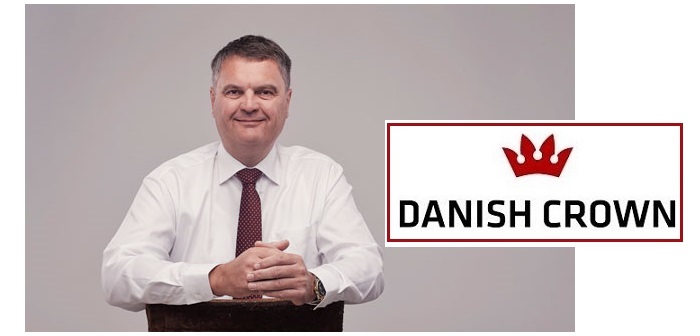Danish Crown has achieved net profits for 2015/16 of DKK 1.6 billion (£183.8m), down from the previous year’s DKK 1.8 billion (£206.8m), a performance described by the company as being “satisfactory”.
The company, reporting today, said that a strong demand for pork in China and other Asian markets was the main reason why it has been able to maintain a competitive settlement for its owners in the past year.
It also said that declining earnings in the “important UK market” in the past year had, to a large extent, been offset by increased earnings in other parts of the group.
“The Chinese appetite for imported pork was exactly what was needed to lift prices in Europe,” said Danish Crown’s Group CEO, Jais Valeur (pictured above). “This was obviously positive for Danish Crown’s sales, but what pleases me most is the fact that the higher prices have led to renewed optimism among the company’s owners.”
Despite decreasing foreign exchange rates in some of the group’s main markets, therefore, the group’s sales topped DKK 60 billion (£6.9bn) for the first time, although this achievement was “greatly helped” by a Swedish acquisition at the beginning of the year, as well as generally increasing prices for pork.
Even with the group’s profit decline, however, Danish Crown Chairman, Erik Bredholt, said the overall result was satisfactory.
“It highlights the strength of being a group that rests on several legs,” he said, “as we have had a year with declining earnings in the important UK market, which has, however, to a large extent been offset by increased earnings in other parts of the group.”
The group’s directors are recommending total supplementary payments of almost DKK 1.3 billion (£149.3m) to the owners. This corresponds to DKK 1.00 per kg (11p/kg) of pork, while the cooperative members supplying sows will receive DKK 0.80/kg (9p/kg). In addition, a total of DKK 102m (£11.7m) is being credited to the owners’ personal members’ accounts, resulting in pig and sow members being paid DKK 0.075/kg (1p/kg).
While acknowledging that these figures are down on last year, Mr Bredholt said they should be seen in the light of a year with special challenges.
“The prices we are paying are still above those being paid in Germany,” he said, adding that, because of the challenges faced by the group in the UK market, the price difference between Denmark and Germany was slightly smaller than last year.
He also commented that the UK subsidiary Tulip Ltd had experienced “significant losses of competitiveness and earnings” (during the year), resulting in a change of leadership and structure.




